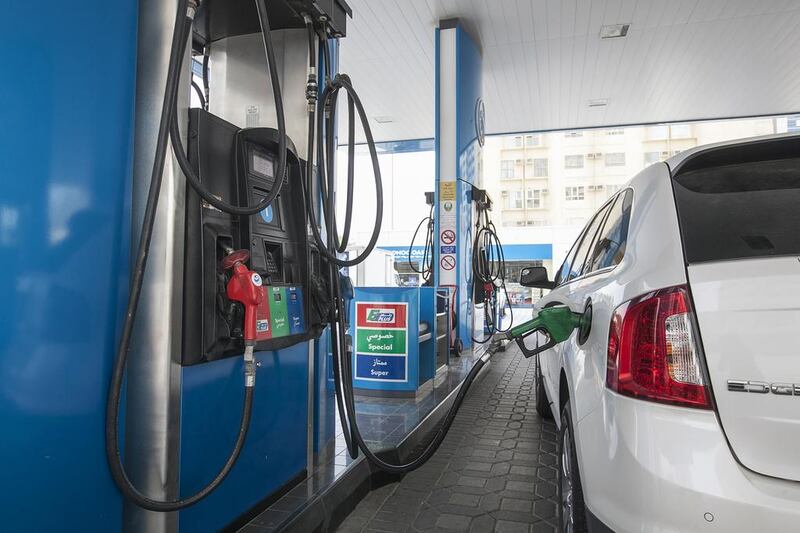It has been a hullabaloo and no mistake. The shock waves sent through the UAE as a result of fuel-price deregulation will no doubt be felt months or even years from now. While I’ve been on a three-week holiday in the United Kingdom, I’ve watched from afar the bitter complaints, the sheer panic writ large on the foreheads of cash-strapped motorists. I’m afraid I don’t understand the big deal.
To put things into perspective, in the UK, there are punitive taxes paid by almost everyone leading a normal life. For motorists, they include vehicle-excise duty (mistakenly referred to by the majority as “road tax”) based on a car’s emissions, fuel duty and VAT. A litre of normal unleaded petrol in the UK right now costs, on average, the equivalent of Dh6.60. This represents a significant decrease since oil prices began to tumble a year or so ago. In the UAE, a litre now costs Dh2.14, or about a third of what UK motorists pay.
Apart from the United States, you could say the same about practically any developed country: fuel prices are high. But they’ve been too low here for decades, resulting in complacency and far too many vehicles on the roads that demonstrate sheer ambivalence regarding the environment. When I relocated here from the UK in 2011, the first thing friends and colleagues thought I’d do was buy myself a big V8 muscle car, but I did the exact opposite. It doesn’t matter to me how much petrol costs: I chose a compact, fun car that has proved its worth countless times as a daily companion in this punishing environment.
So many owners of vehicles that do little but consume fuel and road space are now reeling from the shock of having to pay more for their petrol. Drivers are up in arms, claiming they’ll have to downsize their cars (they probably should, for all sorts of reasons) or even, in extreme cases, leave the UAE and set up home elsewhere. I have a few alternative suggestions, however: keep your existing cars, drive with more consideration, share lifts to and from work with colleagues and keep on top of your vehicle’s maintenance. And I suppose motorists could cut down on Friday brunches if further savings need to be made.
Yes, I know that there are many car users here who have very little materially and might not have access to public-transport infrastructures. Their daily commutes might involve long distances and they might be unable to share journeys with other motorists. But even then, the fact remains that we shouldn’t expect the Government to subsidise our petrol. Yes, the UAE is a major oil producer, but we cannot expect to continue getting what amounts to cash handouts. For the sake of our economy, we need to be paying the going rate, especially when global economics have reduced the price of export crude.
To those who say they’ll be forced to buy cars that are cheaper to run, I say this: stop and think about the sums involved before you head for the showrooms. In the UK a few years ago, many owners of thirsty cars opted to have LPG tanks and fuel lines installed, because the fuel was half the price of petrol. The costs involved were never recouped by drivers covering normal annual distances; LPG became little more than a passing fad. If you sit down and work out how long it will take a new car to pay for itself in saved fuel, you’ll probably forget it.
So do what those terribly naff posters say and keep calm. Keep hold of your car for longer, keep it running right and be lighter with your right foot – that way, you won’t notice the extra spending every time you fill your tank.
motoring@thenational.ae
Follow us @LifeNationalUAE
Follow us on Facebook for discussions, entertainment, reviews, wellness and news.






